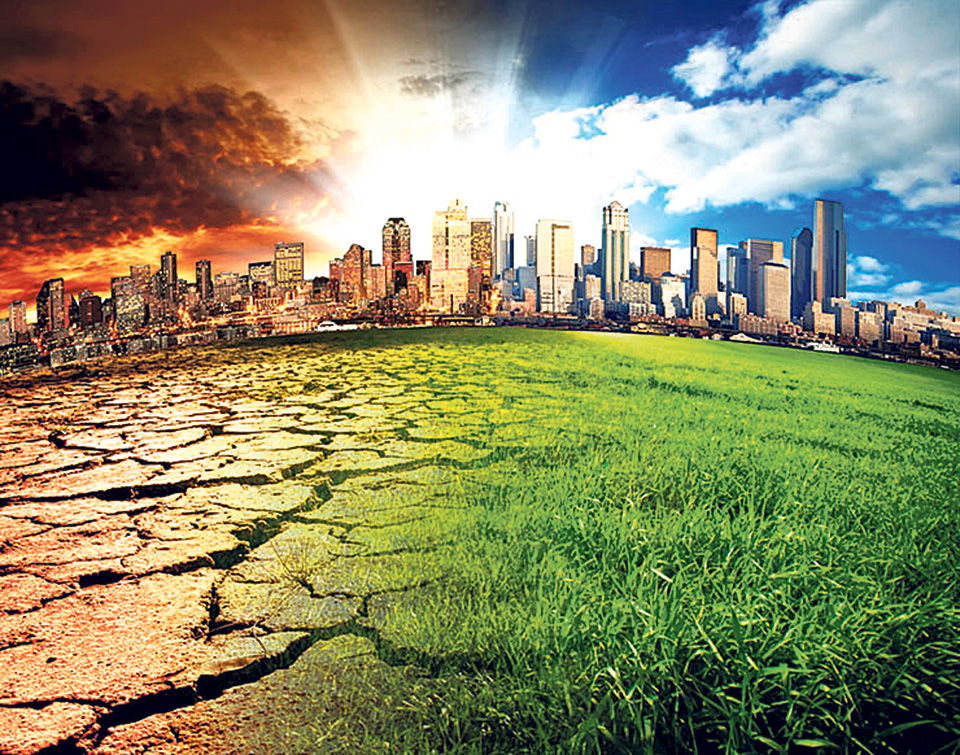
It is a known fact that Nepal is prone to water induced disasters as the country is rich in water sources.
Landslides and floods are two common disasters that alone claim hundreds of lives each year, also causing social and economic challenges in the country every year.
Though the country is rich in topography and water sources, Nepal has become more vulnerable toward water induced natural disasters.
The recent tarai flood has claimed at least 126 lives, while 35 are reported missing. On the other side, the drains have been blocked due to haphazard garbage dumping, blocking the outflow of rainwater in the low lands. Therefore, the proper waste management system is inevitable in cities area.
The consequences of climate change have become more evident and it has a huge socio-economic cost. Meteorologists have confirmed that the farmers experience too much rainfall or no rainfall at all over the period because of global warming, which has a negative impact on the rainfall pattern and eventually reduces agricultural productivity.
In city areas, rapid urbanization and poorly planned infrastructures are the major reasons for global warming.
Every rainy season, many villages and cities are inundated. It is true that humans cannot have control over natural calamities, but we can definitely work on preventive measures for safety. The flood-affected areas have poor living condition and unsafe drinking water, exposing the victims to endemic diseases.
Poverty robs these people of the chances to live in safe housing and robs them of a voice too. Failing to protect people living in dangerous areas has had devastating consequences. However, there are also factors outside the country’s control, which make the disasters so significant.
The biggest predicament is that, it is the poor who suffer first and worst. The flood-hit areas are sensitive to cholera, which could lead to yet more loss of lives. The effort to adopt preventive measures despite disasters and devastation every year from governmental as well as non-governmental organizations is visibly negligent.
Although some organizations are actively working and collecting funds for the flood victims, the authorities concerned seem indifferent.
As the recent tarai disaster unfolded, it is high time that we need to be prepared for natural calamities so as to minimize physical damage as well as loss of lives. Despite the fact that we all know about the problem, we seem to keep repeating past mistakes.
He is a student of MA second year (Economics) at Tribhuvan University and an environmental activist.


Leave A Comment